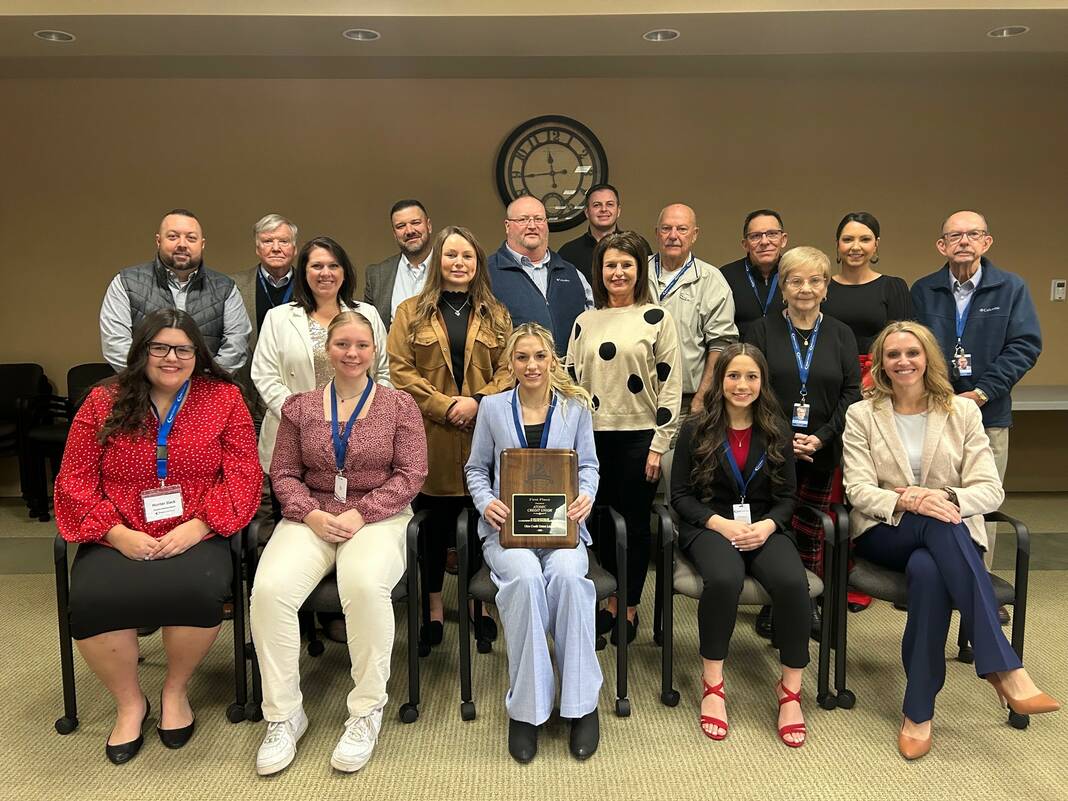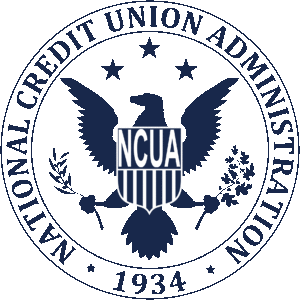Ohio Story Archive
 Atomic Credit Union First in Ohio for Youth Financial Education Program
Atomic Credit Union First in Ohio for Youth Financial Education Program
January 5, 2024 — Atomic Credit Union is very excited to announce that they have achieved first place in the State of Ohio in their asset category for the Desjardins Youth Financial Education Award. The Desjardins award, named after credit union pioneer Alphonse Desjardins, recognizes leadership within the credit union movement on behalf of financial literacy for members and nonmembers of all ages. It emphasizes the movement’s longtime commitment to financial education.
“It is a tremendous honor to be recognized for helping youth in our communities with financial education. This unique student-run credit union program is so much fun to be a part of and our team has rapidly increased the program to over 70 schools that we attend on a weekly basis” stated Andy Eisnaugle, Director of Financial Education. He continued to say, “I am proud of the work and attention to detail that our staff puts into helping the members. These students are the future and Atomic has established a lifetime commitment to helping them learn basic finances. We have even had the privilege to help several other credit unions with information on how to set up and operate a unique program such as the student-run credit union. Atomic Credit Union is very proud to be one of the top leaders in the State of Ohio in youth financial education!”
Ohio Credit Unions and Banks Oppose Interchange Legislation
 June 9, 2023 — Ohio Credit Union League and the Ohio Bankers League, organizations that collectively represent nearly 400 Ohio banks and credit unions and the millions of Ohio small businesses and consumers they serve, strongly oppose the Credit Card Competition Act, introduced today and co-sponsored by U.S. Senator JD Vance (R-OH).
June 9, 2023 — Ohio Credit Union League and the Ohio Bankers League, organizations that collectively represent nearly 400 Ohio banks and credit unions and the millions of Ohio small businesses and consumers they serve, strongly oppose the Credit Card Competition Act, introduced today and co-sponsored by U.S. Senator JD Vance (R-OH).
The reintroduced measure creates a pathway for restaurants and merchants to use alternative credit card payment systems and could restrict credit access and put consumers at increased risk for fraud and data breaches. Read more
Initiative To Legalize Recreational Marijuana Could Be On Ohio’s November’s Ballot
Courtesy of Megan Henry, Ohio Capital Journal
 May 12, 2023 — The Coalition to Regulate Marijuana like Alcohol has a proposal that would legalize and regulate the cultivation, manufacturing, testing and sale of marijuana to Ohioans 21 and up. Ohioans could vote to legalize recreational marijuana later this year. But there are still hoops to jump through to get such a proposal on the November ballot.
May 12, 2023 — The Coalition to Regulate Marijuana like Alcohol has a proposal that would legalize and regulate the cultivation, manufacturing, testing and sale of marijuana to Ohioans 21 and up. Ohioans could vote to legalize recreational marijuana later this year. But there are still hoops to jump through to get such a proposal on the November ballot.
The Coalition to Regulate Marijuana like Alcohol has a proposal that would legalize and regulate the cultivation, manufacturing, testing and sale of marijuana to Ohioans 21 and up. It would also legalize home grow for Ohioans 21 and up with a limit of six plants per person and 12 plants per residence. The proposal would also impose a 10% tax at the point of sale for each transaction.
NCUA Re-establishes AMAC as Independent Office: Examination Responsibilities for Ohio to Transfer to Southern Region
 The NCUA Board approved moving management and oversight of Asset Management and Assistance Center (AMAC) activities from the Southern Region to an independent office led by the President of AMAC. Additionally, the Board approved the transfer of examination and supervision responsibilities for the state of Ohio from the Eastern Region to the Southern Region by notation vote. Seventeen full-time employees will transfer from the Eastern Region to the Southern Region to support the realignment. Both actions are effective January 1, 2023. Read More
The NCUA Board approved moving management and oversight of Asset Management and Assistance Center (AMAC) activities from the Southern Region to an independent office led by the President of AMAC. Additionally, the Board approved the transfer of examination and supervision responsibilities for the state of Ohio from the Eastern Region to the Southern Region by notation vote. Seventeen full-time employees will transfer from the Eastern Region to the Southern Region to support the realignment. Both actions are effective January 1, 2023. Read More
Ohio League Participating in Fraud Awareness Week
Nov. 15, 2022 — Pointing to the overall costs of fraud to businesses and consumers, the Ohio Credit Union League said it is participating in International Fraud Awareness Week this week to promote anti-fraud awareness and education.
The OCUL cited data from the Association of Certified Fraud Examiners that shows fraud costs organizations worldwide an estimated 5% of their annual revenues. According to a 2021 data breach report by IBM and the Ponemon Institute, aggregated U.S. data breach costs last year totaled $4.24 million, up 10% from the $3.86 million average cost in 2019, the league stated.
The OCUL added that the anti-fraud movement, known commonly as Fraud Week, champions the need to proactively fight fraud and help safeguard businesses and investments from an increasing fraud problem. READ MORE
Debit Card Fraud Wave Hits Small Ohio Credit Union, More Than $15,000 Stolen From 150+ Accounts
Courtesy of Jim DuPlessis, Credit Union Times
 Sept. 23, 2022 — A small credit union in Ohio that has been hit by a flurry of hacks to member debit cards said it is part of a “massive” wave of similar attacks worldwide.
Sept. 23, 2022 — A small credit union in Ohio that has been hit by a flurry of hacks to member debit cards said it is part of a “massive” wave of similar attacks worldwide.
Sandra Hollenberg, president/CEO of YS Federal Credit Union of Yellow Springs, Ohio ($27.3 million in assets), said Friday that 166 of its 2,014 members had been affected as of Thursday. The hackers had made attempts for $36,682 in purchases. The credit union blocked most of the attempts, charging them back to the merchants, but $15,137 got posted to member accounts.
Hollenberg said no one’s personal information has been compromised, and members are being made whole with credits to their accounts.
The credit union put up a banner on its website warning members that an “industry, world-wide, massive MasterCard debit card fraud” had affected some members. “YSCU is doing everything possible to reduce additional fraudulent postings from not-yet-affected cards,” it said. “This did not result from anything YSCU’s product or staff failed to protect or do.”
The fraudulent purchases began in early September and the amount of attempts had reached about $35,400 on 161 accounts as of Monday when it was first reported by The Yellow Springs News. “It has been slowing down,” Hollenberg said.
Hollenberg said experts from the credit union’s vendors have told her that they were able to confirm attacks came from Russia, but some attacks could have come from other countries.
Her vendors did not say how many other financial institutions had been affected. “They used the word ‘massive,’” she said. “It’s not just nationwide; it’s globally.” CU Times sought a response from the U.S. Federal Trade Commission, but had not yet received a response as of Friday afternoon.
Hollenberg said the method was a “brute force attack” in which the hacker used the credit union’s BIN number and guessed at the member’s debit card numbers to make small purchases. When it found a match, it would then make larger purchases.
The FTC’s website compares brute force attacks to beating odds by employing an “infinite number of monkeys at an infinite number of typewriters.”
Click here to read the entire article.
Minimum Wage Increase Announced
September 30, 2022—Ohio’s minimum wage is scheduled to increase on Jan. 1, 2023, to $10.10 per hour for non-tipped employees and $5.05 per hour for tipped employees. The minimum wage will apply to employees of businesses with annual gross receipts of $371,000 or more per year.
The current 2022 Ohio Minimum Wage is $9.30 per hour for non-tipped employees and $4.65 per hour for tipped employees. The 2021 Ohio minimum wage applies to employees of businesses with annual gross receipts of $342,000 or more per year.
The Constitutional Amendment (II-34a) passed by Ohio voters on in November 2006 states Ohio’s minimum wage shall increase on Jan. 1 of each year by the rate of inflation. The state minimum wage is tied to the Consumer Price index (CPI-W) for urban wage earners and clerical workers for the 12-month period prior to September. This CPI-W index increased by 8.7% percent over the 12-month period from Sept. 1, 2021 to Aug. 31, 2022. The Constitutional Amendment is available online.
For employees at smaller companies with annual gross receipts of less than $371,000 per year after Jan 1. 2023, and for 14- and 15-year-olds, the state minimum wage is $7.25 per hour. For these employees, the state wage is tied to the federal minimum wage of $7.25 per hour, which requires an act of Congress and the President’s signature to change.
Wright-Patt Credit Union Reduces Fees to Provide Enhanced Value for Members

“Since our founding in 1932, Wright-Patt Credit Union has always put the needs of our members first,” said Tim Mislansky, Wright-Patt Credit Union President and CEO. “As we celebrate 90 years of helping people, we believe lowering these fees will reduce financial stress and anxiety for our members when they carry low balances on their checking accounts, allowing them to keep more of their hard-earned money every time an unfortunate overdraft occurs.”
Effective April 6, 2022, fees reduced and eliminated by Wright-Patt Credit Union include:
Personal Account Fees — previously $19, now $9.
- Non-Sufficient Fund (NSF) fee
- Courtesy Pay Overdraft fee
- Debit Card Coverage Overdraft fee
Business Account Fees — previously $19, now $9.
- Overdraft fee
- Non-Sufficient Fund (NSF) fee
Stop Payment Fee — previously $25, now $9.
Non-WPCU Owned ATM Fee — previously $0.60 per transaction, now eliminated. (This does not include the surcharge an ATM owner may charge for use of their machine.)
“Reducing these fees reflects Wright-Patt Credit Union’s promise to put our members first, not profits,” explained Mislansky. “We will continue to evaluate our fee structures and practices because we’re always looking for ways to provide even more relief and peace of mind for our members.”
The 2021 winners are …
December 15, 2021 | Ohio Credit Union League Foundation
The Ohio Credit Union Foundation’s scholarship programs were established to help credit union members with higher education expenses and build a deeper understanding of the Credit Union Movement. The Student Loan Forgiveness grant achieves this by aiding recent graduates in getting off to a successful start in their aftermarket careers. This year, three Ohio credit union employees received $5,000 toward outstanding student loans.
The winners for 2021 include:
- Dakota Stillion, KEMBA Financial Credit Union
- Kelsey Joseph, Superior Credit Union
- Molly Troller, Day Air Credit Union
We encourage eligible credit union staff to apply for 2022 starting in August and don’t forget to check out the Video Scholarship kick-off in January of 2022 at www.OhioCreditUnionFoundation.org
36 percent consumer lending cap impacts affordable credit
August 11, 2021 — Providing members with access to safe and affordable credit is what your credit union does best. That’s why the League relentlessly advocates on your behalf for a regulatory environment that empowers member service and guards against changes that can inhibit how you deliver it. So when the U.S. Senate Banking and Housing Committee Chairman Sherrod Brown (D-OH) joined Senator Jack Reed (D-RI) and other Committee and Senate leaders in reintroducing the Veterans and Consumers Fair Credit Act, we went to work with CUNA to connect Ohio credit unions with Chairman Brown to talk about the proposal’s impact to successful, consumer-friendly and affordable small-dollar lending programs. The Act seeks to rein in predatory payday lenders and other costly loan product providers by extending the Military Lending Act’s 36% all-in interest rate cap to cover veterans and all Americans.
While federally chartered credit unions participating in the NCUA PALs program would be exempt, most Ohio credit unions would be subject to the more restrictive, all-in interest rate cap standard moving forward, effectively restraining small-dollar lending programs currently available to members. We will continue working with CUNA and Chairman Brown’s office to illustrate how limiting access to credit will bring unintended consequences to consumers that need affordable and emergency capital from their trusted financial partner, like your credit union.
Connect with Chief Advocacy Officer Emily Leite for any questions or concerns regarding the 36% rate cap proposal or if your credit union would like to share a successful small-dollar lending story with Congress.
Ohio Receives Grand Slam with Accreditation
 July 15, 2021 – The National Association of State Credit Union Supervisors (NASCUS) is proud to announce Ohio has earned Re-Accreditation following a series of in-depth reviews and assessments by a panel of veteran state supervisors.
July 15, 2021 – The National Association of State Credit Union Supervisors (NASCUS) is proud to announce Ohio has earned Re-Accreditation following a series of in-depth reviews and assessments by a panel of veteran state supervisors.
The Ohio Department of Commerce/Division of Financial Institutions to be the first state supervisory authority to become accredited under all four accreditation programs: credit union (via the NASCUS Accreditation Program), bank (via CSBS), mortgage and money service business (MSB, also both via CSBS).
More than 88% of the $989 billion in state-chartered credit union assets are supervised by NASCUS’ 28 accredited state agencies.
“Accreditation is direct evidence of an agency’s capabilities and benefits all credit unions in the state as well,” said NASCUS President and CEO Lucy Ito. “It recognizes the professionalism of a state agency’s regulators, supervisors, and staff, while potentially delivering an impetus and support for legislation to modernize state law and policy changes to advance state supervisory processes and best practices.”
NASCUS accreditation is a robust process that includes disciplined self-evaluation, peer review, and ongoing monitoring. The process, administered by the NASCUS Performance Standards Committee (PSC), measures a state regulatory agency’s ability and resources to carry out its regulatory and supervisory programs effectively.
To earn Accreditation, a credit union state supervisory agency must demonstrate that it meets accreditation standards in agency administration and finance, personnel and training, examination, supervision, and legislative powers.
NASCUS adopted the Accreditation Program in 1989 to administer and assure states’ credit union examination and supervision quality standards. This program, modeled on the university accreditation concept, applies national performance standards to a state’s credit union regulatory program.
Ohio Real Estate and Financial Associations support First-Time Homebuyer Savings Act
The First-Time Homebuyer Savings Act would encourage investment in Ohio’s communities
March 1, 2021 — A coalition of Ohio real estate and financial organizations have joined forces in support of Senate Bill 24, Ohio’s First-Time Homebuyer Savings Act. The legislation, SB 24, introduced by Sen. Theresa Gavarone (R-Bowling Green) and Sen. Bob Peterson (R-Washington Court House), would authorize a first-time homebuyer to open a tax-deductible savings account in which a person can deposit money that would be used toward a down payment of a home purchased in Ohio.
The coalition supporting SB 24 includes the Ohio Bankers League, Ohio Chamber of Commerce, Ohio Land Title Association, Ohio Manufactured Homes Association, Ohio Mortgage Bankers Association, Ohio REALTORS, Ohio REALTIST Association, and the Ohio Credit Union League.
A “first-time homebuyer” is defined as someone who has not purchased or owned a home within the past three years.
Ohio lawmakers debate COVID-liability protection
May 28, 2020 –Lawmakers in Ohio are debating legislation that would limit the liability of businesses that reopen in the wake of the COVID-19 pandemic. The bill, SB 308, would provide service providers, including credit unions, with protections from COVID-19 related lawsuits except in instances where the provider’s acts are “intentional, willful, or wanton misconduct.”
In testimony in support of SB 308, the Ohio Credit Union League asserts that “costly and frivolous litigation is a serious threat to a provider’s ability to confidently and reliably offer necessary support, services, and products.” The League maintains that the bill would maintain “civil recourse for those impacted by bad actors found in violation of state requirements.”
The legislation is currently pending in the Ohio Senate Judiciary Committee.
Ohio League Pursuing Legislation Targeting Cyber Criminals
The Ohio Credit Union League is seeking to advance a measure in the Buckeye State that would increase the penalties for individuals found guilty of electronic data manipulation, theft or phishing. The League cites the uptick in cyber crimes and lack of action at the federal level as rationale for the Ohio Cyber Crimes Act, House Bill 368, to promptly pass.
Another converts to private insurance: River Valley CU
Oct. 4, 2018 — As of October 1, the $344 million River Valley Credit Union, located in Miamisburg (Dayton), Ohio, converted from federal to private share insurance provided by American Share Insurance (ASI). ASI has been offering Ohio credit unions a choice in share insurance since 1974. With the addition of River Valley Credit Union, ASI now insures 51 credit unions in the state.
What’s new in your state?
Click here to submit your state-chartered credit union news stories to NASCUS today!